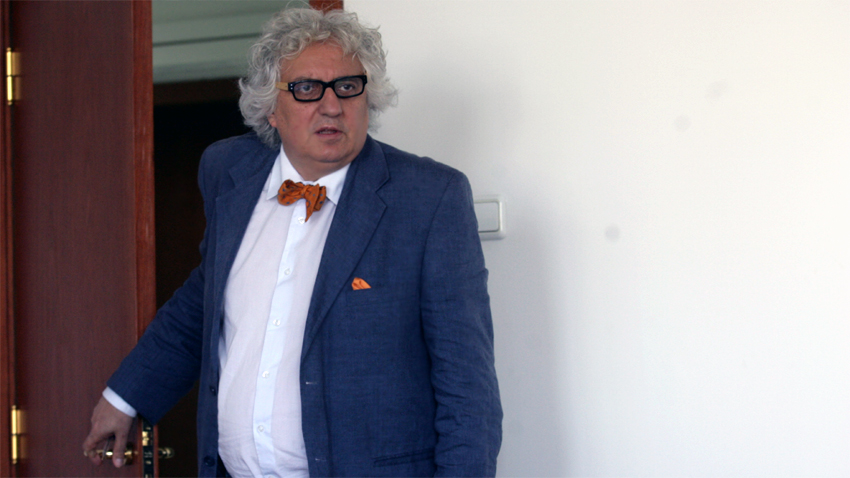The long-running Chairman of Bulgaria's Council for Electronic Media (CEM), Associate Professor Georgi Lozanov has surprisingly stepped down. And here are some of his arguments. There are no legal grounds for CEM to refuse the registration of a new TV channel in Bulgaria. Obviously, there are moral grounds for such an act though: „I shouldn't like with either my vote as CEM member or with my signature as its chairman to legalize in electronic  media the aggressive rhetoric of the online media outlet of the same name that easily switches to the registers of hate speech, though not necessarily in racial, ethnic or religious lines I am faced with a contradiction that does not leave to me a personal choice other than stepping down from the Council”.
media the aggressive rhetoric of the online media outlet of the same name that easily switches to the registers of hate speech, though not necessarily in racial, ethnic or religious lines I am faced with a contradiction that does not leave to me a personal choice other than stepping down from the Council”.
No one in Bulgaria is in a hurry to step down. In this particular case “haters” would readily explain that with or without a resignation, Prof. Lozanov's term will soon expire. It is however much more important that the stepping down CEM chairman has put a few questions about the media environment in Bulgaria that have been a millstone for society. No one should entertain the illusion that the Radio and Television Act could work as a guarantee for ideal media. Laws draw up a framework. Nevertheless, it is obvious that the current legislation is far from worthy, because it gives no option for establishing the sources that provide financing to media outlets; envisages no threshold for concentration of media ownership; fails to protect journalists from media owners; does not sanction hate speech; does not require a declaration about the political orientation of media outlets while at the same time permits broadcasting of programs hosted by professional politicians.
Freedom of speech charts released by large international organizations such as Reporters Without Borders, Freedom House and the Association of European Journalists rate Bulgarian media as increasingly undemocratic and dependent, and less and less professional. According to those organizations media outlets fail to perform their basic functions to inform and educate society and have instead turned to entertainment or to a purposeful propaganda serving the objectives of their owners who still remain vague and secretive. A few studies of the media environment in Bulgaria suggest rampant dependence of journalists on media owners, politicians and advertisers. One in two of polled journalists from 40 media outlets complained about political pressure in the job and one in three admitted about influence exerted by advertisers. One in three journalists practiced self-censorship on a day to day basis. Against this background media audiences are left to draw up their conclusions on their own. In reality though viewers, listeners and readers come under strong manipulative and propaganda pressure instead of getting truthful information and a diversity of opinion.
Media outlets are in fact hostages of unofficial censorship and this situation is the result of economic hardships in the sector plus the lack of consensus and understanding about the role of media in the context of a democracy. The media environment has a decisive role to play for the proper functioning of a democratic society. In advanced democracies this is an unshakable postulate. In Bulgaria, the concentration of media in one and the same oligarchic structures and the lack of transparency of media ownership jeopardize democracy and turn it into a window dressing.
Shortly after the opening of the motorcycle season in Sofia at the end of March, Bulgaria's capital city will host the country's largest motorcycle exhibition . The event takes place from today until April 14 at Arena 8888 Sofia . Between 700 and..
Students and teachers from two educational companies of the National Commerce and Banking High School won awards at the global business competition Youth Business Summit 2025 – US , organized by the US Headquarters of Educational Enterprises, the..
Is it possible that "Virtues and Religions" will be included in the curriculum and will be mandatory from 2026? This is a debate that has seen different points of view expressed in the last few weeks. "The introduction of mandatory..
Students block the entrances to the Radio and Television of Serbia For 12 days now, students and citizens have been blocking the entrances to..
Cambridge Day 2025 - one of the leading events for English language teachers in Southeast Europe - takes place today at the Balkan Hotel in Sofia. For..
A new book "Bulgarian communities in Albania and Kosovo. Socio-political processes and demographic consequences (1913-2024)" was..

+359 2 9336 661
